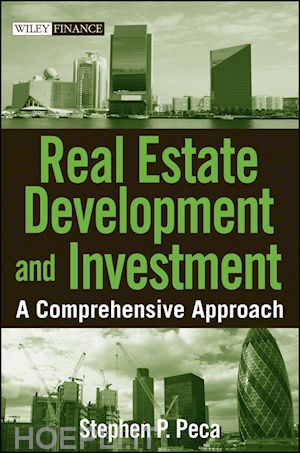Preface. Acknowledgments. Chapter 1. Overview of the Development Process. Economic Perspective. Relevancy of Universal Knowledge. Ground-Up Development versus Re-Development. The Six Phases of Development. Chapter 2. Business Ethics. Relevancy to the Real Estate Industry. Legislated Ethics. Chapter 3. Project and Development Teams. Types of Developers. Functional Disciplines in the Development Process. Factors to Consider When Forming a Development Team. Chapter 4. Historical Perspective Of Real Estate Development. The Beginnings of Real Estate Development. Major Events Causing Change in the U.S.. Chapter 5. Market Research. Inception of the Idea. Markets, Market Research and Marketing (Analysis of Development Potential). Concepts That Define Marketing (And Markets). Using Market Studies and Preparing for Marketability Studies. Sources of and Methods for Gathering Information. Flaws of a Study. Validate the Data and the Importance of Revisions and Updates. Chapter 6. Marketability Studies. Showing that Your Development Concept Could and Should be Built. Importance of Marketability Studies Revisited. Idea Refinement and the Application of the Marketability Study. The Process of Idea Refinement. Chapter 7. Land Acquisition and Control. Non-Spatial and Spatial Markets. Elements of Design. Target Markets and Market Share. Site Control and Acquisition. Public and Private Restrictions on Land Use. Chapter 8. Land Planning and Siting. Value Creation. Project Programming and Design. Elements of Design Again. Talking to End Users. Tenant Mix and Marketability. A Brief Word About Architectural Drawings. Chapter 9. Entitlement Process and Public/Private Partnerships. Typical Community Approval Process. Public/Private Partnerships. Chapter 10. Budgeting, Financial Analysis And Capital Structure. Preparing for the Financial Analysis and Proforma. The Development Budget. The Operating Proforma. Review of Common Analytical Measurements. Financing and the Capital Markets. Short- and Long-Term Financing. Financing Cycle Anticipating Requirements. Elements of a Feasibility Study or Deal Book. Guarantees. Chapter 11. Contractors, Consultants and Construction Contracts. Budgeting and Scheduling. Contractors and Construction Contracts. Risk Management During Construction. Preparing for Construction Bid Proposals and Review. Construction Documents and Construction Agreements. Risk Management Part 2. Scheduling. Bonding and Insurance. Construction Monitoring: Draw Meetings; Managing Change Orders. Tenant Improvements and Coordination. Construction Close-Out. Chapter 12. Leases and How They Are Used. Value Creation. What is a Lease? Common Lease Structures. Lease Management and Analysis. Chapter 13. Marketing Focus of Development. Know Your Target Audience. Your Essential Vision. The Importance of Branding. Image, Identity and Communication. Components of Marketing Centers. Chapter 14. Investment Management. Function and Goal of Property Management. Function and Goal of Asset Management. Function and Goal of Portfolio Management. Property Life Cycle. Chapter 15. The Future. Recent History Where We Left Off. Apparent Future Trends. Green Development and Smart Growth. Social Responsibility and Ethics. Glossary. Index.











